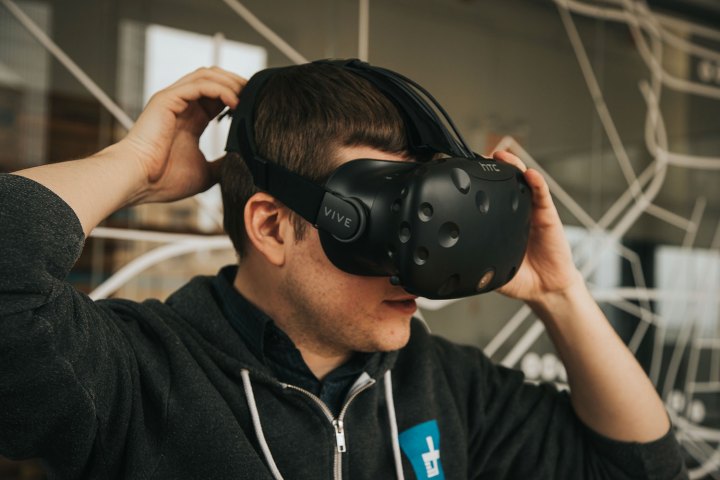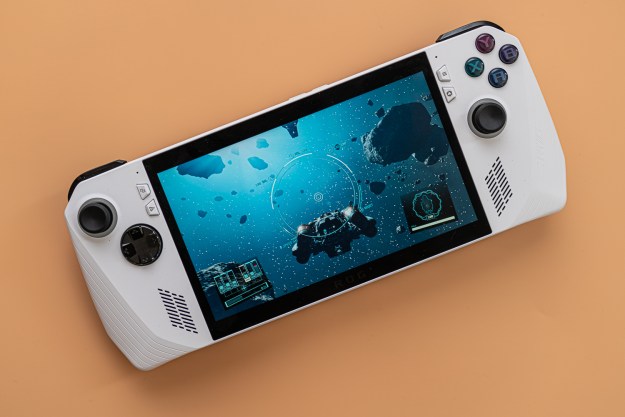
That is a problem that Dan Cook, a former University of California, San Diego, postgraduate in cognitive neuroscience, is hoping to solve. Cook created a company called EyeMynd with the goal of marketing a new type of VR headset — one that relies not on handheld controllers, but on user brain activity.
“We’re creating a brainwave technology for controlling VR,” Cook told Digital Trends. “We think we have the brainwave code cracked at a very deep level. We’re using the mathematics of quantum physics to build a new type of deep brain learning software — not reliant on neural networks — that works really well for human brainwaves. Even though only a very small amount of information is able to make it through the human skull, it is still good enough that we can animate human avatars using brainwaves.”
Cook said EyeMynd is on the cusp of releasing a brain-monitoring Developer Brainwave VR headset, equipped with 16 electroencephalography (EEG) sensors able to interpret thoughts and convert them into VR user commands. The technology will be compatible with HTC Vive, and will reportedly launch in the first quarter of 2017.
“We’re working very hard to make this technology affordable,” Cook said. “At first, the headset will cost a few hundred dollars, but as a few years go by, we think it will be possible to get a brainwave virtual reality headset priced at under $100.”
While the technology will get cheaper, Cook said that the EEG-sensing technology will get more complicated, allowing for more information to be interpreted. At first, this will be simple facial expression recognition, although later on he noted that he expected other body part tracking, emotion-sensing, and more to become part of the interface.
At present, it sounds almost too good to be true, although there is no disputing some of the exciting work which is being done in robotics right now using EEG technology. If the same tech can be applied to VR, it could certainly turn out to be an intriguing development for all involved.
“When you’re in the virtual world — whether you’re playing a game or something else — you don’t want to have to keep thinking about what you’re doing with your hands,” Cook said. “It’s much better to have pure brainwave control. It will be a much more satisfying experience, and will allow for a much greater level of immersion. You can forget about your live human body, and just focus on what’s going on in front of you.”
Editors' Recommendations
- You really do not want to forget your Vision Pro passcode
- This futuristic haptic vest should make virtual reality feel more realistic
- Best virtual tours that you can take without leaving home
- HTC offers cheaper Vive Pro Eye bundles, expands eye-tracking in VR
- The Best Black Friday virtual reality headset deals in 2019


